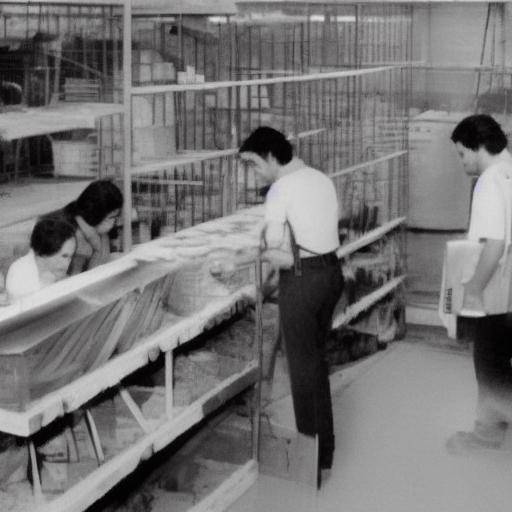
Constructive feedback plays a key role in labour relations, greatly influencing the working environment, professional development and effectiveness of the teams. In this article, we will thoroughly explore the meaning and importance of constructive feedback in the working environment, as well as its influence on relations between colleagues and superiors. In addition, we will analyze the implications of constructive feedback on employee productivity and well-being, providing practical advice and real examples to illustrate their positive impact. This comprehensive guide provides a comprehensive and detailed view of how constructive feedback plays an essential role in creating healthy and productive labour relations.
Introduction
In the current dynamic working environment, constructive feedback has become a crucial pillar for professional growth, continuous improvement and strengthening of labour relations. The term "constructive feedback" refers to communication that drives progress, promotes learning and promotes excellence. Its influence transcends daily interactions at work, directly affecting the motivation, trust and performance of employees.
History and Background
The practice of constructive feedback is rooted in the first approaches to human resources management in the early twentieth century, when the importance of providing employees with specific and useful comments for their development began to be recognized. Over time, constructive feedback has evolved from an authoritarian approach to a collaborative tool of growth and mutual improvement.
The first studies and theories on constructive feedback emerged in the field of organizational psychology, highlighting their impact on the intrinsic motivation of employees and their relationship with self-efficacy. Over time, these concepts have been integrated into human resources management and organizational culture, becoming an essential component in creating healthy and productive working environments.
Analysis in Deep
Constructive feedback offers a wide range of benefits for labour relations, including confidence-building and transparency, improving interpersonal communication and boosting professional development. However, its effective implementation presents challenges, such as resistance management and a balance between criticism and praise.
The increase in the adoption of continuous feedback models has been a sign of current trends in human resources management, reflecting an approach to proactive improvement and iterative development. This evolution demonstrates the importance of constructive feedback on the adaptation of organizations to changing and demanding working environments.
Comprehensive review
The effective implementation of constructive feedback requires a holistic approach ranging from the training of leaders and supervisors to the creation of an organizational culture that values transparency and continuous learning. Good practices in constructive feedback are highlighted in inclusive and diverse working environments, where respectful expression of views and consideration of different perspectives are encouraged.
The constant evaluation of the methods and processes of constructive feedback is essential to ensure their effectiveness and relevance in a constantly evolving working context. In addition, the study of successful cases and the reflection on past experiences can provide a solid basis for continuous improvement in the implementation of constructive feedback.
Comparative analysis
The interrelationship between constructive feedback, the role of each individual in the working environment and working relationships as a whole is crucial to understanding their impact on productivity and job satisfaction. When constructive feedback is integrated into labour dynamics, linkages between team members are strengthened, a climate of trust is fostered and positive results are promoted.
Practical Tips and Accessible Recommendations
Implementing constructive feedback effectively requires a set of key strategies and skills. Some practical advices include setting a clear framework for feedback, focusing on specific behaviors rather than personal judgments, and providing guidance for continuous improvement. In addition, training in receiving and delivering feedback can significantly improve the quality and impact of labour interactions.
Key tips for effective constructive feedback:
- Establish an environment of trust and respect.
- Identify specific behaviors and their impact.
- Providing concrete suggestions for improvement.
- Promote open and responsive dialogue.
Perceptions of Industry and Expert Reviews
Leaders and practitioners in human resources management have highlighted the importance of constructive feedback as a key element in building sound and achieving-oriented labour relations. The voices of experts in the field emphasize the need to promote an open and honest feedback culture, as well as the integration of effective mechanisms for the follow-up and implementation of corrective actions.
Case studies and practical applications
Cases of study that illustrate the successful implementation of constructive feedback provide a valuable perspective on their impact in different contexts and working environments. The identification of innovative practices and outstanding results in leading organizations can serve as a benchmark for continuous improvement in the management of constructive feedback.
Future Trends and Predictions
As organizations adapt to more dynamic and changing working environments, constructive feedback is expected to play an even more crucial role in improving individual and collective performance. The advance in feedback technologies and data analysis promises to provide new opportunities for optimizing constructive feedback, driving significant improvements in decision-making and talent development.
Conclusion
In short, constructive feedback not only plays a vital role in improving performance and professional development, but also influences the quality of labour relations and organizational climate as a whole. By fostering an effective and constructive feedback culture, organizations can consolidate their competitive position and promote a rewarding and enriching working environment for all partners.
Frequently asked questions
Why is constructive feedback important in the workplace?
Constructive feedback is essential to boost employee growth and development, while strengthening labour relations and fostering an environment of mutual trust and learning. It provides clear guidance for improvement and promotes a culture of continuous development.
What are the most common challenges in implementing constructive feedback?
The management of feedback resistance, the need to balance criticism and praise, and the guarantee of a constructive tone are common challenges in implementing constructive feedback. Training and skills development are key to effectively addressing these challenges.
How can a culture of constructive feedback be fostered in an organization?
Promoting a culture of constructive feedback implies establishing clear expectations, providing training for the development of skills in delivering and receiving feedback, and recognizing and rewarding constructive behaviour. Promoting transparency and open communication is essential in this process.
What is the impact of constructive feedback on team leadership and management?
Constructive feedback plays a key role in developing effective leadership skills, promoting open communication, empathy and alignment of expectations. In addition, it promotes the cohesion and performance of the teams by fostering collaboration and individual growth.
How can the effects of constructive feedback be measured in labour relations?
The effects of constructive feedback on labour relations can be measured through indicators such as labour satisfaction, productivity, talent retention and the quality of interpersonal interactions. Work climate surveys, performance evaluations and qualitative data analysis are useful tools to evaluate these effects.
What is the impact of constructive feedback on organizational culture?
Constructive feedback contributes greatly to the formation of an organizational culture based on trust, openness and commitment to continuous improvement. By fostering open and respectful feedback, organizations can strengthen their culture, promote innovation and adapt more effectively to changes.
Summary
Constructive feedback plays a key role in improving individual and collective performance, while strengthening labour relations and organizational culture. By understanding their impact, implementing effective approaches and fostering a continuous learning mentality, organizations can maximize the potential of constructive feedback in creating healthy and productive working environments.
With constant attention to the evolution of trends and best practices in constructive feedback, organizations can optimize their ability to adapt to changing working environments and promote the sustainable growth of their talent.






















































